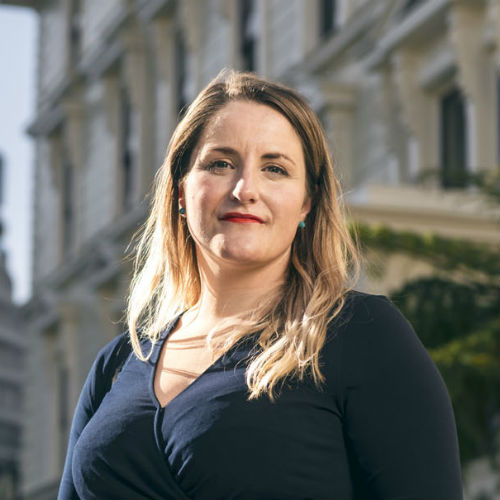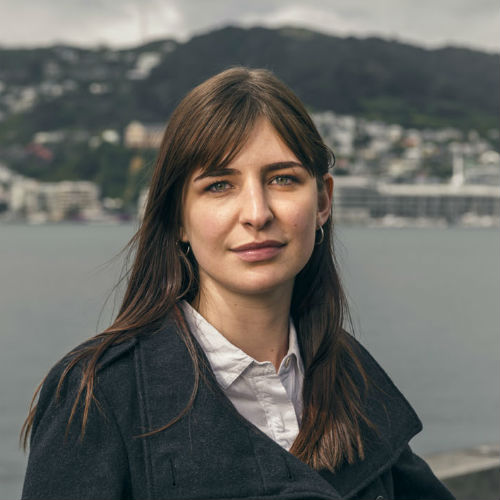
Master of Laws – LLM
Broaden your legal knowledge and enhance your career with specialist study in postgraduate Law.
The people you work with and learn from are an important part of your studies. Learn who the teaching staff are and hear what the programme is like.
Academic staff
- Prof Gordon AndersonProf Gordon Anderson—Employment and labour law and international labour regulation
- Prof Tony AngeloProf Tony Angelo—Pacific law, private international law, comparative law, aspects of constitutional and public international law, legislative drafting
- Prof Graeme AustinProf Graeme Austin—Copyright, trade marks, international intellectual property, general civil obligations
- Dr Mark BennettDr Mark Bennett—General legal philosophy and political theory, trusts law, property theory, wealth structures and avoidance, residential tenancies
- Prof Richard BoastProf Richard Boast—Legal history, land law, Māori land claims, the Treaty of Waitangi and the Waitangi Tribunal, Latin American law and legal history
- Prof Petra ButlerProf Petra Butler—Human rights (domestic and international); business and human rights; private international law; international commercial contracts; international dispute resolution; German law; unjust enrichment
- Dr Eddie ClarkDr Eddie Clark—Public law, administrative law, law and democracy, law and sexuality
- Prof Alberto CostiProf Alberto Costi—Public international law, law of armed conflict, international environmental law, comparative law, public law
- Prof Susy FrankelProf Susy Frankel—International intellectual property, international trade law, copyright, patents, trade marks, indigenous peoples’ intellectual property
- Prof Claudia GeiringerProf Claudia Geiringer—Public and constitutional law, Bill of Rights, comparative constitutional law, especially comparative human rights, laws of Parliament
- Prof Mark HickfordProf Mark Hickford—Treaty of Waitangi and Crown/state indigenous relations, constitutional law and history, legal history, indigenous rights and law/public policy, including in relation to natural resources
- Prof Catherine Iorns MagallanesProf Catherine Iorns Magallanes—Environmental law, climate change, indigenous rights, statutory interpretation
- Dr Carwyn Jones—Treaty of Waitangi, Māori custom law, Māori land law
- Dr Dean KnightDr Dean Knight—Public law (constitutional and administrative law, especially judicial review), local government and democracy
- AProf Meredith LewisAProf Meredith Lewis—International trade law, international economic law
- AProf Nessa LynchAProf Nessa Lynch—Youth justice, criminal justice, criminal law, children’s rights
- Prof David McLauchlanProf David McLauchlan—Law of contract
- Dr Danica McGovernDr Danica McGovern—Law and psychology, criminal law, and justice
- Prof Geoff McLayProf Geoff McLay—Torts, trusts and equity, law reform, legislation
- Prof Nicole MorehamProf Nicole Moreham—Law of privacy, breach of confidence, media law, harassment, torts
- Dr Grant MorrisDr Grant Morris—Legal history, negotiation and mediation, law and literature
- Prof Joanna MossopProf Joanna Mossop—International environmental law, law of the sea, Antarctica
- Prof John PrebbleProf John Prebble—Tax, elections, conflict of laws
- Dr Zoë PrebbleDr Zoë Prebble—Criminal law, criminal justice, evidence, gendered violence, legal ethics, legal philosophy, feminist legal theory
- Paul ScottPaul Scott—Competition law, law and economics, remedies
- Prof Tony SmithProf Tony Smith—Criminal law, public law, media law, contemp
- AProf Matteo SolinasAProf Matteo Solinas—Corporate and financial law, comparative law, legal history and Italian law
- Victoria StaceVictoria Stace—Company law, securities regulation insolvency law, commercial law, consumer law, personal property securities law
- Māmari StephensMāmari Stephens—Māori and law, Treaty of Waitangi issues, welfare law, law and language, social security law, Māori jurisprudence
- Prof Yvette TinsleyProf Yvette Tinsley—Criminal law, criminal justice, evidence
- Kate TokeleyKate Tokeley—Consumer law, medical law
- Dr Ruiping YeDr Ruiping Ye—Land law; comparative law; legal history; Chinese law
- Dr Michelle ZangDr Michelle Zang—European constitutional law; European external relations; international economic/trade/investment law; international dispute settlement
Stories

Hayley Bowman
Master of Laws student
Through the networking opportunities I’ve had, I’ve been able to keep abreast of the really important legal areas that interest me.
A new challenge
Hayley Bowman was working part time and missed the intellectual stimulation of a challenging role, so she decided to enrol for her Master’s.
“I missed the mental gymnastics of looking into complex legal problems.
“I think taking a step back into the academic world when you’ve been practising for a long period of time helps sharpen your analytical skills and your ability to argue and to lead a discussion. It really helps with your confidence in that area, and your ability to handle being challenged and having to defend your argument and your position.”
Flexibility and support
Hayley’s taken a variety of different courses including administrative law, security law, and one on the judiciary. She says the diversity of courses and the flexibility of the timetable has worked well for her as she’s moved into more challenging roles in her career. She has now opted to complete her Master’s, writing a 12,000-word thesis supervised by Professor Nicole Moreham.
“The flexibility of papers really worked for me. When I’d really found an area of interest – and that was privacy—I approached a lecturer and was able to do my own thesis without coming to class to work on in my own time. That’s been really good, to fit around my family.”
Taking the opportunity
The chance to try out different areas of study and discover her own passion has been a highlight for Hayley and one of the main reasons she would recommend studying for a Master’s.
“It helps you figure out where you want to go. Sometimes it is so easy to get caught on a factory line in your workplace where you’re just working in one little area of the law. I’m really interested in administrative law and privacy, and I wouldn’t necessarily have realised that had I not gone and studied.”

Kathleen Henning
Master of Laws student
Wellington is like a city nestled inside a forest—I don’t know how many places like that there are in the world.
Building networks
Kathleen Henning comes from South Africa, and was drawn to the Faculty of Law by its strong international reputation in Intellectual Property law. Since arriving she has been impressed by the quality of teaching and the attention given to individual students.
“Working under people like Professor Graeme Austin and Professor Susy Frankel has just been amazing, because they’re very knowledgeable—really the best in their field. It allows you to make some really useful connections.”
A beautiful setting
The proximity to the outdoors and the friendliness of the people are two things Kathleen rates highly about New Zealand.
“I was stunned by the nature and the scenery. Being able to look out the window and see forests, that’s amazing. The people are so friendly—that’s something I’ve really noticed—and always willing to help.”
She has also enjoyed Wellington’s diverse culture and many cafés: “It feels metropolitan but really safe and vibrant at the same time.”
Discovering her passion
Kathleen’s main piece of advice for new students would be to take advantage of everything the University has to offer—be it the clubs and societies, internships, or just engaging in Wellington’s legal community.
“A Master’s is about so much more than just the degree. You can actively engage with the staff and other professionals, and make sure you get everything out of it that you can.
“Doing your Master’s really allows you to hone in on the area of law or the area of study that you find really interesting—engage with the topics, speak with other people who know a lot about the field, pull it apart, get to know it well, write about it… and just find that part of the law that makes you tick.”
Previous
RequirementsNext
How to apply

